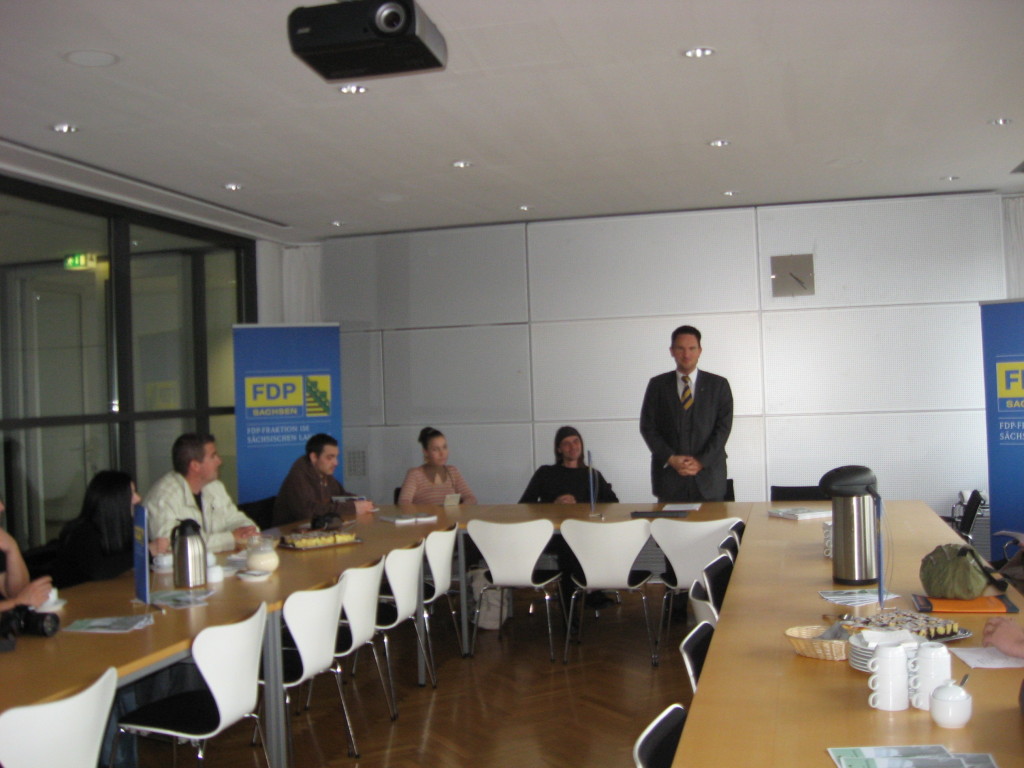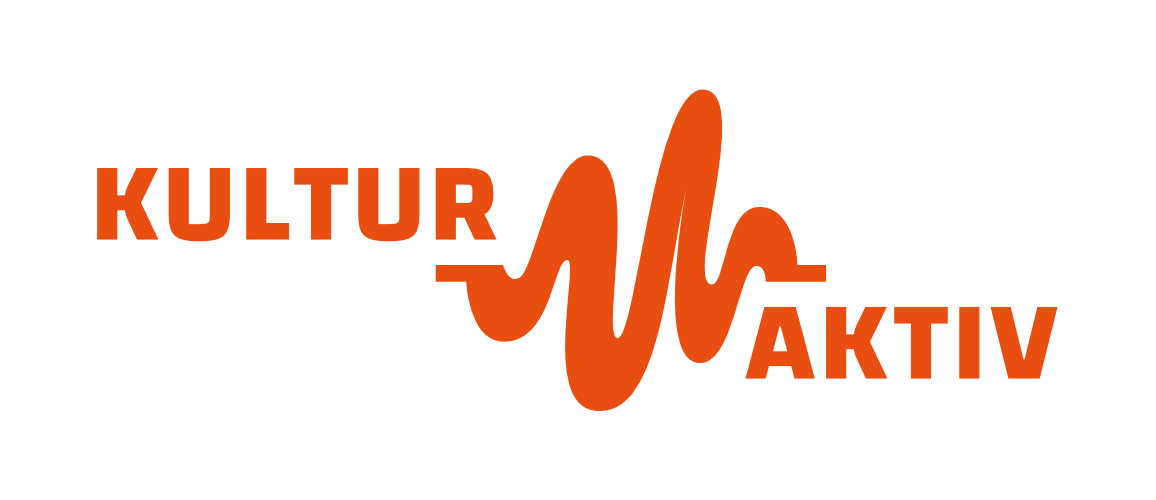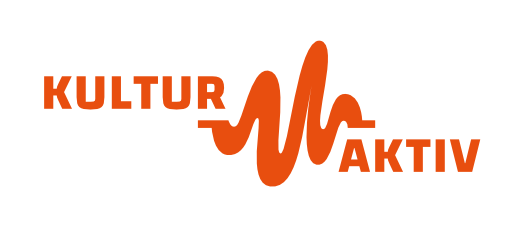Study Visit
April, 10th – April 17th, Berlin, Dresden – Germany
As intended in our planning, the study visit took place in Germany as the first bigger part of “Music without Borders”. The visit had to be postponed for one week, what caused some difficulties in organizational tasks, but not to the success of the visit.
The partner-organizations from the Balkan countries chose the participants, considering their local needs and contacts. So the delegations were mixed by representatives of different NGOs, music-workers and cultural managers at different levels. Due to this fact, the expectations and results differed among the participants. In an opening session in Berlin all participants were introduced to each other, a hot round-table discussion already showed the current situation and problems of the music scenes in Vranje, Vukovar and Skopje.
The program contained three different views on the music-related structures in Germany:
1. NGOs
2. Private music-market players
3. Public administration and government
As for the NGO-sector we could organize several meetings, but three failed. One important structure in Germany is the “Initiative Musik”, which is nonprofit private-public foundation, sponsored 50:50 by the German government and by the music-industry. This construction allows an effective support to musicians and music-related NGOs without disturbing the market. Unfortunately the staff was not available during our visit. Second NGO we couldn’t meet as planned, was the “Dresdner Stadtmusikanten”. As a small NGO made by local musicians for support to local musicians, but they died for different reasons, as one main factor it was due to the lack of support by the cultural department of the City of Dresden. But this example was explained during another workshop, so that the participants also could recognize it. The third case was the PopUp music fair in Leipzig, due to the lack of time of their voluntary staff.
Successfully meetings were arranged, first, with Kulturbüro Dresden, an umbrella organization for consulting of NGOs and locally political lobbying of independent cultural organizations in Dresden. Second, Scheune is a cultural house in Dresden and run by a NGO, their case was highly interesting for the participants, because the house was run in former GDR by the state, after the revolution it was run by the city-administration and later tendered to the nowadays NGO, while the NGO organizes the cultural program in it and takes care for the equipment, the building itself remains state-owned. This model of privatization was found useful for many cultural centers in the Balkan countries, were most of them are still in the hand of the state with different related problems. Above that their project “Scheune Academy” as an educational instrument for musicians and small music-entrepreneurs gave an example of what can be done without much money, but clever ideas and self-initiative. A third in-view was given by the “Rockcity Magazine”, which is released by some enthusiasts as support to the local music scene and their promotion. Beside the fact that the magazine is released offline, which is untypical in times of “internet 2.0”, the magazine was administrational based at “Dresdner Stadtmusikanten” NGO, just to have a juridical body. This kind of platform for smaller projects is also one point of the philosophy of Kultur Aktiv. Forth, main outputs of the meeting with Kultur Aktiv were about the cooperation with the local administration. On one hand the cooperation with the department of international relations and EU is quite reliable, successful and transparent, whereof both partners profit and launch private-public-partnership activities to support exchange between Dresden and its twin-towns. On the other hand the relations with the cultural department are fragile. Although the processes of decision-making are transparent, the lack of support to Kultur Aktiv is since years obvious, but neither the local administration nor the local politicians take responsibility to change it. Finally Kultur Aktiv claimed the Mayor for Culture in Dresden to resign due to it. The overall situation and functioning of Kultur Aktiv was explained, with special focus on how to run a NGO also under difficult circumstances. Most if the participants understood, that NGO work also in Germany isn’t so easy. That’s why that the participants enjoyed the presentation of Kultur Aktiv’s activities in the field of cultural resistance, like flash-mobs, in order to raise such issues into public awareness.
Summarizing the meetings with NGOs, the participants got an overview about structural functions of NGOs within the cultural and musical branch in Germany, with its advantages and disadvantages. As well they could take off inspirations for their work.
The second part of the study visit was meetings with players from the music-market. The delegation was welcomed at Eastblok Music, a label specialized on music from Eastern Europe. Beside details lot of the German music-market for musicians from the Balkan countries it was discussed, which role NGOs play for small entrepreneurs like Eastblok, such as political lobbying, networking by conferences and exploration-travels. All these information were found quite useful for the participants. Second, Agents4Music were visited, a booking agency, considering bands from Eastern Europe too for touring throughout Germany, Austria and Switzerland. The discussion enlightened the specifics of the German life-music market, chances for bands from the Balkans to enter it and the role of NGOs at this market, such as festival-organizers, club-shows and support to young musicians and newcomers. Third, a meeting with Susan Treubrodt happened, she is professional booker for private owned music club “Huxleys Neue Welt” in Berlin, as well for NGO-run music-club “Waschhaus Potsdam”. She pointed out, how professional calculations are done and how NGOs as owners of clubs have to carefully calculate their income by entrance, sponsoring and gastronomy. As the state support to NGO-run youth centers is decreasing since years, she explained how negative that influences especially support to newcomers and local young musicians. As an interesting fact can be reported, that the work of “Huxleys Neue Welt” although based in Berlins part Kreuzberg, which has a high rate of Turkish migrants, has no relation to them at all and do not consider their special culture. Forth, Borek Jirik appeared, he is a promoter of big arena concerts in Prague and capitals in Central Europe. Beside general findings (decreasing unit sales, increasing honoraries for live-shows), he underlined the role of NGOs in order to set up common standards for stage and event safety at least within the EU. This discussion was mainly interesting for participants, who are already active in the music-business. Last but not least, with Jörg Schittkowski a dropout representative joined the group. He reported about his career, starting with an NGO-owned cultural centre, where he was able with strong support of the state of Saxony (Program “Structural Support to Rock Music” in 1990s) to establish rehearsal rooms, later a studio, record label, distribution, publisher and finally producing executive for Sony Music. Due to the crash of the CD-market and to the construction that his NGO was working in the highly sensitive music-market, he quitted his job and is nowadays hobby-musician. His story was found very useful in order to see, what structures can be build, but under what conditions and how the support of the state can disturb the market.
The third issue of the study visit was about the cooperation between Civil Society and Public Political bodies. For this issue, we organized meetings at all three political levels: national, regional and local. First, the participants were given an overview, how the responsibilities in the field of culture are shared in Germany between national, regional and local authorities. Especially the lack of a national Ministry of Culture showed the focus of responsibility of culture on the regional level. Second, at all three levels exists systems of support for culture and cultural NGOs, wherein the participants got a deeper insight, how transparent, reliable and sustainable decisions on support are done. Third, the role of NGOs were discussed, such as umbrellas or lobby NGOs at all three levels, but also as project-implementers and their importance for the society and the political system. But, as reality is, so in Germany as well, it’s not only black and white. So, forth, the participants joined critical discussions as well. Main issue was the politically often emphasized importance of civic engagement in comparison to public support to it. The funds for independent cultural NGOs at all three levels are quite low, as an example the City of Dresden can give project support to one NGO about approx. 800 Euro per year, which is – considering our “Music without borders”-budget – a more symbolic support. Understanding these facts, the official receptions of our delegation in Deutscher Bundestag, Sächsischer Landtag and City Administration of Dresden showed a closed cooperation between NGOs, Kultur Aktiv in particular, and the public bodies, but also it’s critical dimension.
After all this different inputs and impressions the participants were pleased first to identify the main problems of their local music scene (in working groups by countries) and to make a short presentation to the whole group. This showed, that the situation in Vranje, Vukovar and Skopje is in many points the same, beside some differences mainly in Skopje, where some useful structures already exists. In a second step, the working groups discussed along this list of problems, who of the participants will present the information from the study visit to local musicians, music managers, NGO representatives and others in the Regional Workshops in June in the three cities. So we want to ensure, that the Know-How transfer follows the local needs and can be spread by the participants as multipliers to the Balkans. After this session, the groups decided, who of the Germans experts they met, will be good to be invited to the Regional Workshops and the Conference in autumn. As for the music business professionals Armin Siebert (Eastblok Music), Philip Hofmann (Agents4Music) were chosen, and additionally Jörg Schittkowski as expert in both fields.
Two additional offers for the delegation had to be reported, which was first the official reception in the Embassy of Macedonia in Berlin, where the Ambassador herself took time to welcome each participant personally and hold a speech, in which was underlined, that “Music without Borders” among others is an important step towards Macedonia’s EU-membership. The last night in Dresden instead was dedicated to what is the story also about: music! Dresden’s most favored alternative music club “Katys Garage” hosts the delegation and Dresdenian nightdancers to a Balkan Party.
Summarizing the study visit as our first project step, it can be considered as successful, useful and effective. A monitoring was done by two questionnaires, expectations in the beginning and results and critics at the end, findings will be considered in the external monitoring report. From Kultur Aktiv point of view as organizers of the study visit and project leader, it can be said, that the cooperation between all four partners is not so easy, as the partnerships are newly established. But all partners are highly experienced and differences or irritations could be fairly discussed in internal meetings, so that at the end the core-team for “Music without Borders” is motivated for next steps to be done.

